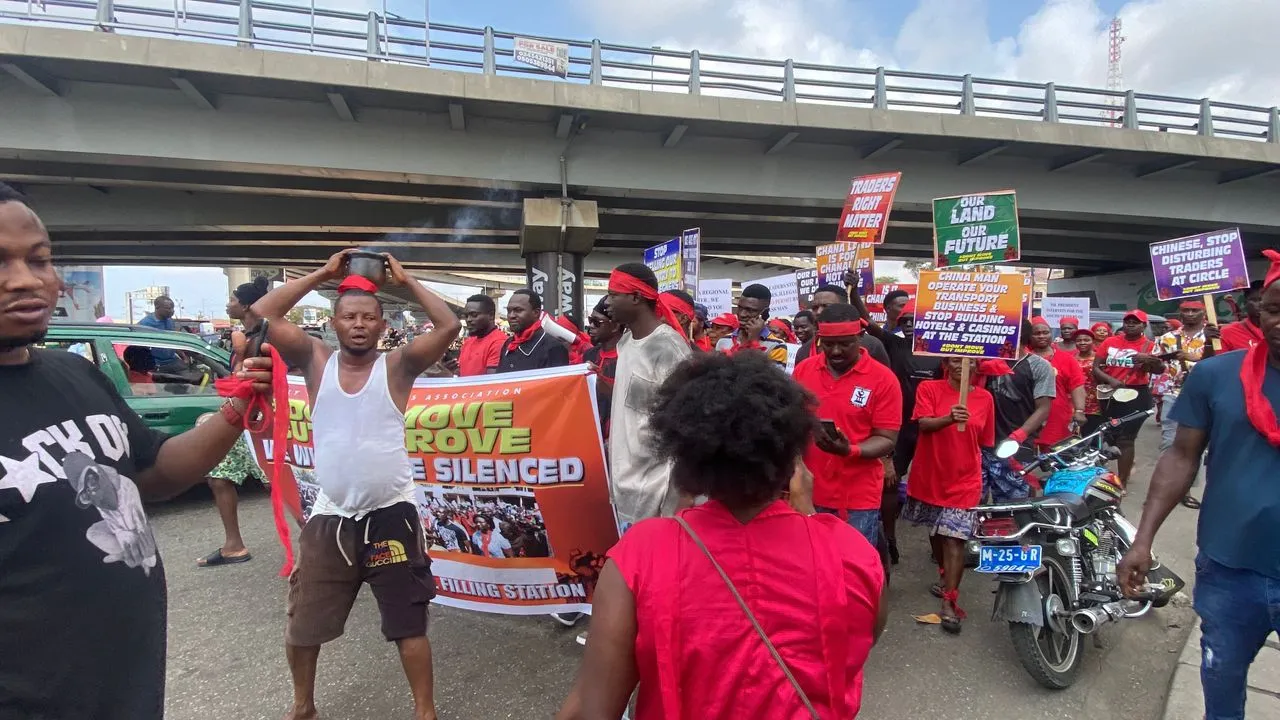Read also:
- Hearts of Oak Clinch 2025 Democracy Cup with 1-0 Win Over Great Olympics
- No Ticket Sales at Gate for Black Stars vs Mali Match
- Global Football Frenzy: 17 Teams Already Qualified for 2026 FIFA World Cup.
- Prof. Alidu Seidu Wins NDC Primary in Tamale Central Constituency.
- Tontokrom Community on Edge as Military Deployment Sparks Tensions.
Over 3,000 traders at the Holy Garden Police Station Market near Circle in Accra are facing potential eviction due to alleged plans by a Chinese businessman to acquire the land for expansion purposes. The traders, who have operated in the market for decades, claim that the eviction would severely impact their livelihoods and the local community.
The traders claim that the Chinese businessman is behind the move, seeking to acquire land for expansion purposes. “This market is our lifeline,” one trader said. “If we are removed, more than 3,000 families will be thrown into hardship.” The traders are calling on authorities to intervene and safeguard their livelihoods.
The loss of livelihoods would be devastating for the traders, who depend on the market for their survival. The market is not only a source of income for the traders but also a vital part of the local supply chain, providing goods to the community. The eviction would disrupt the supply chains serving the local community, leading to potential shortages and economic hardship. Furthermore, the traders believe that the eviction would erode confidence in Ghana’s ability to protect indigenous businesses from unfair foreign interference.
The background of the issue reveals that WB Impex Limited, a foreign-owned company, is allegedly behind the eviction plans, citing a court order that they argue is directed at an individual who neither owns the land nor invested in the market stalls. The company has allegedly attempted to displace the traders before, but the efforts were unsuccessful. Now, they claim ownership and have issued an eviction notice.
The traders are calling for the immediate suspension of all eviction processes until a fair and transparent resolution is reached. They demand government recognition and regularization of their market to safeguard their rights as local traders. The traders are appealing to the government, judiciary, parliament, traditional rulers, civil society, and media to intervene and protect their livelihoods.




